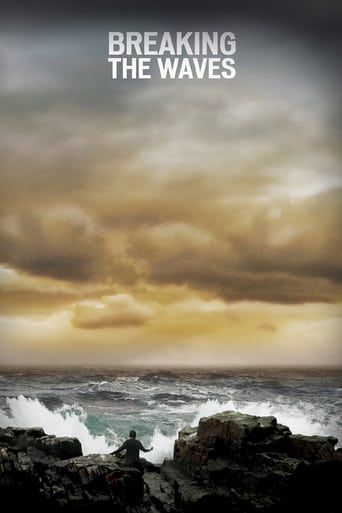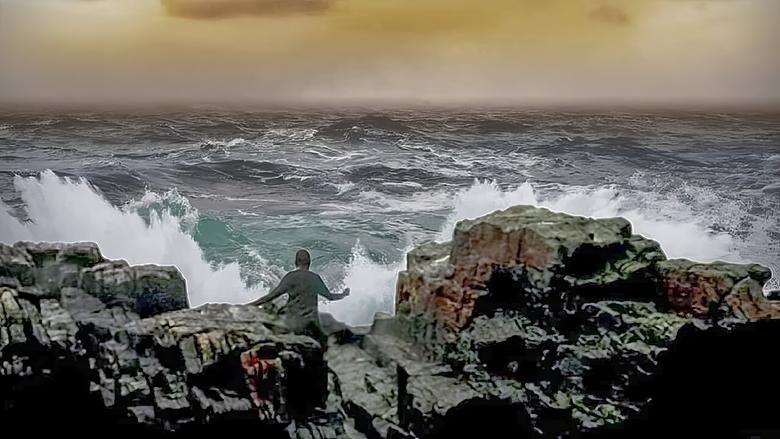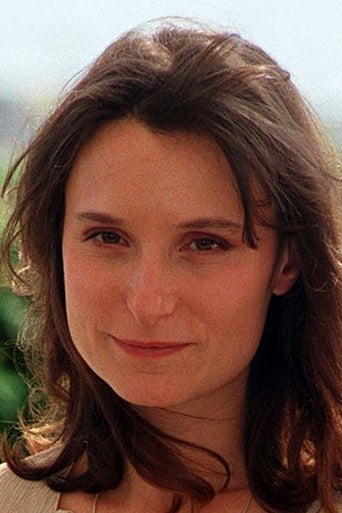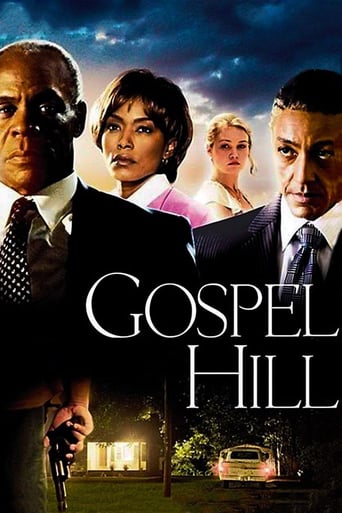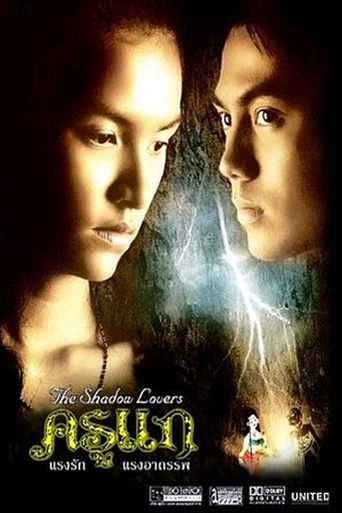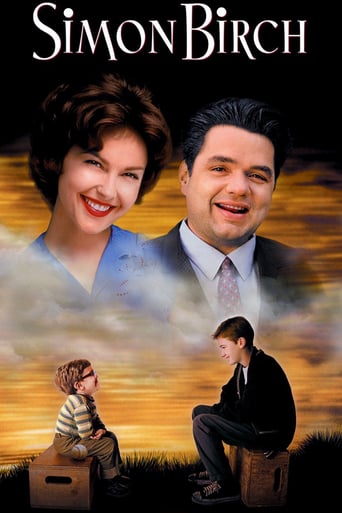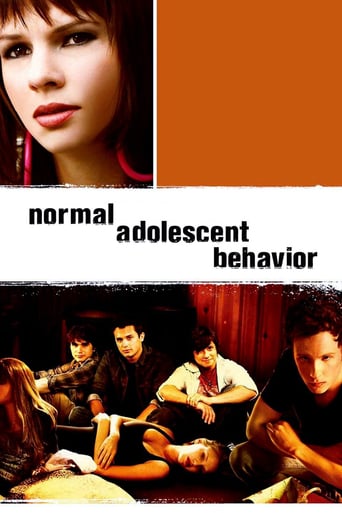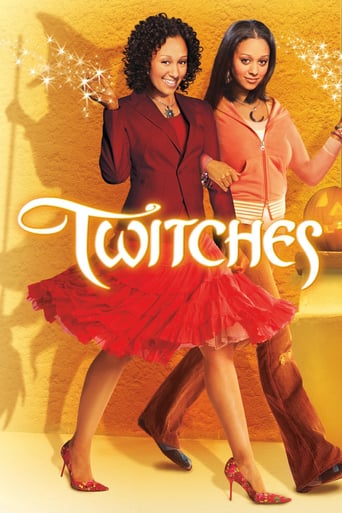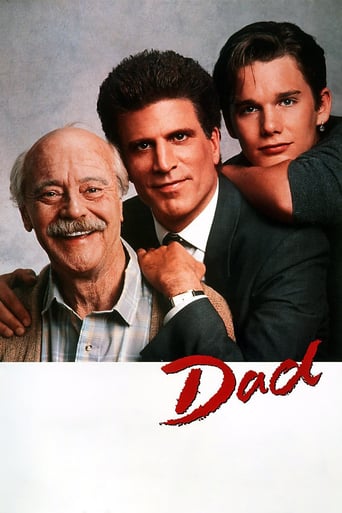Breaking the Waves (1996)
In a small and conservative Scottish village, a woman's paralytic husband convinces her to have extramarital intercourse so she can tell him about it and give him a reason for living.
Watch Trailer
Free Trial Channels
Cast


Similar titles
Reviews
Really Surprised!
An Exercise In Nonsense
I think this is a new genre that they're all sort of working their way through it and haven't got all the kinks worked out yet but it's a genre that works for me.
One of the best movies of the year! Incredible from the beginning to the end.
Bess McNeill is a young woman living in a conservative coastal village in Scotland. Against the wishes of her church she marries Jan, a Scandinavian worker on an oil rig. She is insanely in love with Jan and can't bear it when he leaves to do his shift on the oil rig. Then Jan is injured at work and everything changes.A Lars von Trier movie that covers some interesting themes – obsessive relationships, euthanasia, manipulation, dogma and the lengths people go to for love. Some of these are only touched on though, with no real development or conclusion. Moreover, the story is told in a very drawn-out fashion. The movie could easily have been less than two hours long but von Trier stretches it out to over 2 ½ hours through extending scenes well beyond their usefulness and including scenes that add nothing to the movie.Not entirely engaging either, so the 2 ½ hours moves quite slowly. Bess is not a very likable character – irascible, controlling, intense and a tad insane. Ending is quite emotional though and provides good closure to the story. Another plus is the great soundtrack.Overall, reasonably interesting but is a test of patience.
At first glance, "Breaking the Waves" may appear to be slow paced and full of unnecessary exposition. However, as the film unfolds, each scene comes together like pictures in a photo book. Protagonist Bess McNeil is an innocent and naive woman, who falls madly in love with a man named Jan Nyman. After the two are married, Jan is sent off to work at an oil rig, leaving Bess all alone. Bess pines for her husband and prays for his safe return to the point where her family and friends call her selfish for not readily accepting circumstances. Tragedy strikes when Jan is badly injured in an accident and is feared to never recover. In order to keep his beloved wife happy (and in a drug induced delusional state), Jan encourages Bess to sleep with other men in order to feel the love and affection that he can not show her. Torn between her devotion to her husband and the strict religious convictions she had been raised with, Bess struggles to fulfill Jan's wishes and maintain her role as a devoted child of God. Ultimately Bess chooses to serve her husband, believing that God would want her to make him happy. Bess feels no love from her encounters with other men, longing only for the touch of her husband. The task kills her inside, but she lies to Jan, saying that she enjoyed the experiences. She soon finds herself shunned from her community as her attempts to serve her husband, her community and God fall apart and ultimately lead to her exile and death at the hands of a violent gang who sexual assault and murder her. As she prays for guidance, it becomes clear that there are no answers and the choice between being a good wife and a good Christian can not be compromised. We're given a small solace at the end of the film, when Jan (recovered from his injury) learns of his wife's death and the loyalty she showed him pays tribute to Bess after the church refuses to show such respect. "Breaking the Waves" is a tragedy of conscience, in which no matter what choice is made, heart break is the inevitable outcome. It show cases the conflict between following the strict and unwavering doctrines of religion and doing what is right in unusual and unforeseeable circumstances.
Here was a movie surprise, entertaining us all the way, over it's two and a half hours running time, the story sucking you in like a vacuum. This is one movie I've been so engrossed by, I found it hard to switch the VHS off, if to finish watching the 158 film, the next day, giving it some extra minutes, before I clocked off. Never have I been gripped by such an unbelievably real and emotionally charged performance, as that of Emily Watson, who indeed has mental problems. Not that she isn't surrounded some other great performers, their reputation proved, when seeing them in other films. Oilman, Stellarsgard, nothing like the physics professor from Good Will Hunting, here with long stringy hair, a bit of a flabby body, suffers a fatal mishap that leaves him paralyzed. Unable to perform sexually, he beseeches his love to go out and have random sex and that come back and tell him the juicy details, in depth, that basically gets him off. One scene on a bus, where she made a move on an old Codger, was a riot. I guess that's proving your love. Watson's performance is magnetic, all so authentic, and the hand held shots work well. Stellarsgard is really the only one who gives her leverage or understands her. I really liked his free spirited and determined character, such a reality and natural self about it, where some other times you think he's obnoxious, but it's real. Nell is (Watson) from a strict church background, her mother, harsh, sister (Cartlidge) overprotective. None a moment is more disturbing after she makes one too many trips out of port, for some sex and coin, the client, a frighteningly chilling Udo Kier, anchored on one of those big ships. This is easily Lars's best film, better than those antichrists, or nymphomaniacs, which judging by those ones, you can't believe he made one as good as this, and probably won't make anything that will better it. It's pacing is slow and steady, but necessary for the story flow, proving by the end of it, so and steady can win the race. It doesn't wrap up the way you think, like a twist you could say, on one side of the scale tragic but on the other, inspiring. Great films like these, come along so often, as it more Indie/Art-house type, but these films really set the trend for the 1990's. A bloody absorbing film about real love which more people should be informed about. Don't overlook this pearl.
Tragedy strikes again. What else could I expect from Breaking the Waves, one of the three films in the 'Golden Heart Trilogy' by Lars von Trier? Well, I certainly knew what was waiting for me: the trilogy's concept is to take something beautiful and innocent and completely destroy it, causing real heartache to the viewers – so I kinda knew that I'd be watching two and a half hours of suffering. But Breaking the Waves surprised me, and wasn't predictable as I thought: in fact, it's another great film from the Danish director that, this time, added a religious touch to the tale.Breaking the Waves is about Bess McNeill (Emily Watson), a young woman who marries Jan Nyman (Stellan Skarsgard) and falls madly in love with him. She's a very innocent, pure of heart and deeply religious person, with a past of psychological issues. When Jan has to leave for work, Bess feels very depressed and struggles to live without him. She starts praying that he returns to her as soon as possible, and that's when everything starts to go downhill. Jan is sent home early because of an accident that causes him to remain completely paralyzed. Unable to perform any movements (including sex) and as his health gets worse, he asks Bess to sleep with other men, convincing her that this will keep him alive because it will be as if the two of them were making love. Bess believes that his return and his request are all God's actions for the good of everybody, so she listens to him: soon, she finds herself in a very difficult and painful position.As I said before, von Trier's goal here is to cause you pain while watching the movie. It makes you pretty uncomfortable and always waiting for the worst to happen – but maybe that's just me. I had the constant feeling that something bad was just waiting around the corner and the movie ended up creating really awful situations – even though I thought it would be displaying much worse scenarios. To make a comparison, it wasn't as harsh as Dancer in the Dark was. Both featured amazing acting (especially by the female protagonists) and very good directing, but Dancer in the Dark featured more tragedy, with a crueler finale. I felt like the world was being much harsher to Selma (Dancer in the Dark's protagonist) and she couldn't do anything about it, while Bess could've had some control over the story hadn't she been that innocent, naive and religious. But that's what's special about Breaking the Waves: it heavily features the religious element.I personally quite enjoyed the religious elements in the movie (despite not being a religious person). The protagonist prays to God every day, and believes in Him to the point that she is convinced God answers her prayers through her own voice. The scenes in the movie where she prays and 'talks' to God can get really creepy. Bess thinks that some things, that happen in the movie, did so because she asked God to make them happen, and when those things are bad she feels guilty. But guilt is a feeling she often displays. What made the movie even worse (for Bess, but better for the viewer) are the surroundings and the location. The film is located in the Scottish Highlands, in the early 1970s: a very conservative place, where everything is church-based and God-centered, and that is the reason for Bess' strong faith. Since the town's people and the priests are very conservative and harshly judge her actions, this leads to her being eventually cast out of the church community and her own family as well. I felt some kind of irony here, that von Trier intended to portray: even if your actions are for the good, even if you deeply believe in God and you do everything for him and the people you love, even if you're selfless and would do anything for love – you will still be judged by the Church and the 'interpreters of God's word'. I think von Trier wanted to show the rotten side of the Church, the fact that it doesn't represent true religion anymore and it divides the faithful in two: the ones who base their faith on the Church, and the' true believers'.The film features many unexpected turns and, despite being an overall tragic movie, some of those turns were very pleasant and light hearted. The movie's unpredictability is one of the things that made the whole experience even more enjoyable. All in all, I liked it very much. Every aspect of it was good, from the directing, to the writing, to the superb acting especially, and it's another example of von Trier's masterful skills as a director. It's admirable how inventive von Trier can be: by using the same theme (the destruction of something beautiful) he manages to create completely different situations and develop them in different ways, always causing a huge impact on the viewer. This wasn't a light experience, but what usually makes a movie even better for me is the fact that it's challenging – and von Trier's movies are always good challenges.Rating: 8/10 Read more at http://passpopcorn.com/

